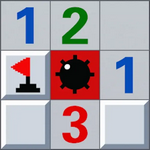
boxing random Unblocked
## Beyond the Brawls: Exploring the Randomness of Boxing Games
Boxing games have come a long way. From the pixelated pugilists of yesteryear to the hyper-realistic fighters of today, the genre has always strived for a blend of skill and spectacle. But what happens when we throw randomness into the mix? The results can be unexpectedly compelling, frustrating, hilarious, and even insightful into the nature of the sport itself.
The traditional boxing game emphasizes learned techniques, strategic decision-making, and precise timing. Players develop muscle memory, learn opponent weaknesses, and carefully manage their stamina. However, incorporating randomness can disrupt this carefully constructed balance, injecting a chaotic energy that fundamentally alters the gameplay experience.
Several avenues introduce this randomness:
* Randomized Stats and Abilities: Imagine a boxing game where each fighter's stats – power, speed, stamina, defense – are randomly generated before a fight. This could lead to unexpected upsets, with seemingly weaker opponents delivering knockout blows, while heavily favored champions crumble unexpectedly. This element introduces a significant layer of unpredictability, making every match a unique gamble.
* Dice Rolls and Chance Encounters: Instead of relying solely on player skill, some games could incorporate dice rolls to determine the outcome of specific punches or sequences. A perfectly timed jab could still miss due to a poor roll, emphasizing luck alongside skill. Similarly, random encounters with different trainers or sparring partners could influence a fighter's development in unpredictable ways.
* Procedurally Generated Opponents and Events: Randomly generated opponents with unique fighting styles and strengths would provide endless replayability. The same goes for event generation – perhaps a surprise injury or a sudden change in the fight's environment could dramatically shift the momentum. This procedural generation removes the predictability of facing the same roster of opponents repeatedly.
The implications of introducing randomness are multi-faceted. While purists might lament the loss of control and the potential for unfair outcomes, others would embrace the element of surprise. A randomized boxing game could foster a more chaotic and emergent gameplay loop, encouraging players to adapt on the fly and develop flexible strategies. It could also provide a unique way to explore the inherent unpredictability of the sport itself – any fight, no matter how seemingly certain the outcome, can take unexpected turns.
Of course, the balance is crucial. Too much randomness would render skill irrelevant, reducing the game to a glorified slot machine. The key lies in finding the right level of unpredictability – enough to keep things interesting, but not so much as to make the game feel unfair or unsatisfying. The challenge would be to design a system that complements the existing skill-based mechanics, creating a unique and engaging boxing experience unlike any other. The future might well see the rise of randomized boxing games that successfully navigate this complex balance, offering players a fresh and exciting way to experience the sweet science of pugilism.



































